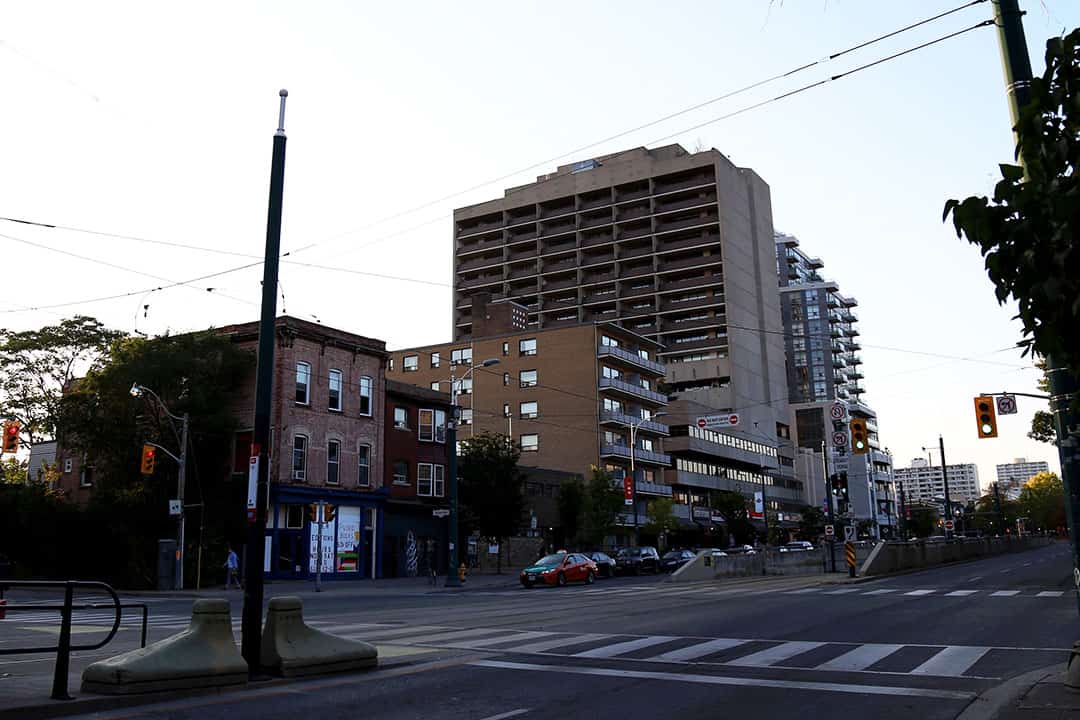On October 2, Toronto City Council adopted recommendations by city staff to oppose the university’s application at the Ontario Municipal Board (OMB) to amend zoning bylaws in order to build a residence on the northwest corner of Spadina Avenue and Sussex Avenue. The motion passed during the review of the Order Paper; it was passed with consent and no debate from council.
The accompanying report by city staff criticized the proposed residence, saying that it is not consistent with provincial plans and that the 23-storey building “is not appropriate for its context as it is too tall, too bulky, and does not provide appropriate tower setbacks.”
The university recently published a report as part of its application to amend the St. George Secondary Plan, which projects a need for 2,300 new beds by 2020 to meet the increased demand for student housing.
Christine Burke, Director of Campus and Facilities Planning, said that this urgent need for residence spaces motivated the appeal to the OMB. “We heard [the community’s] concerns and we made adjustments to the project,” Burke explained, “but we did put in an application in October of last year and with more than three years of consultation, we felt that we needed to move the project along towards a resolution so we could move the project forward.”
The report further elaborates that the proposed demolition of 698 Spadina conflicted with the Growth Plan for the Greater Golden Horseshoe. 698 Spadina was designated a heritage resource by the city in March 2017, approximately seven months after the university had submitted its application to the city.
The university objected to the designation and has brought the issue to the province’s Conservation Review Board, a tribunal that is able to make recommendations to the municipal council or the tourism minister to repeal heritage designations. Burke said that the university does not believe the site has heritage value based on the findings of heritage consultants retained by the university.
A prehearing conference was held in July, and party status was granted to the Harbord Village Residents’ Association. The report claims that the prehearing was adjourned for four months “to allow for public consultation and settlement discussions,” though according to Burke, there have been no settlement discussions. “Essentially, the university is seeking to resolve this appeal together with the OMB appeal, so in more of a comprehensive settlement,” Burke said.
The report also raises concerns over the possible intrusion of the building into the silhouette of 1 Spadina Crescent as seen from the southwest and southeast corners of College Street and Spadina.
The report marks bicycle parking as inadequate; current bylaws require a minimum of 238 long-term bicycle parking spaces for the proposed development. The current plan allows for only 116 long-term spaces.
Burke contends that the bylaws do not have bicycle parking standards specific to student residences. “So what we did with our transportation consultants in planning the residence is… we took a comprehensive study of the demand generated at other student residences that we own and operate to try and understand and figure out what the… appropriate parking rate would be and that’s what we applied to the project.” Burke also added that the St. George Secondary Plan had “substantially” more bicycle parking spaces than required.
The university has requested that the OMB conduct a mediation to settle this conflict. The first prehearing is scheduled for January 2018, where an assessment will be done to identify all parties for the mediation.
In the meantime, the university has other plans to add more residence spaces. Burke said the university is looking to extend Graduate House along Harbord Street and to provide more student family housing in the Huron-Sussex neighbourhood.
Even with the rising opposition against the Spadina-Sussex project, Burke remains “optimistic” that a settlement will be reached, hoping that “it’s just a matter of time.” Burke also maintained that the university remains committed to its guarantee of providing residence spaces to first-year undergraduates.


